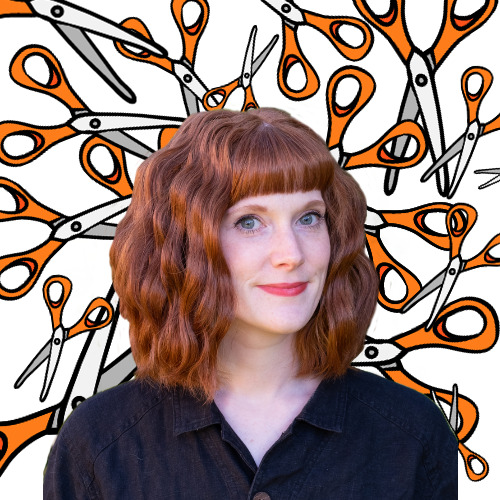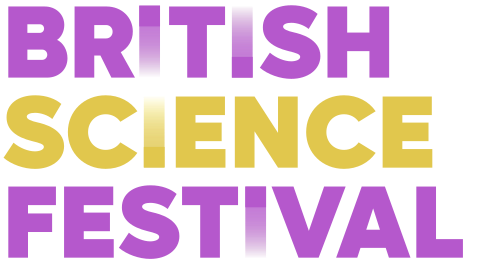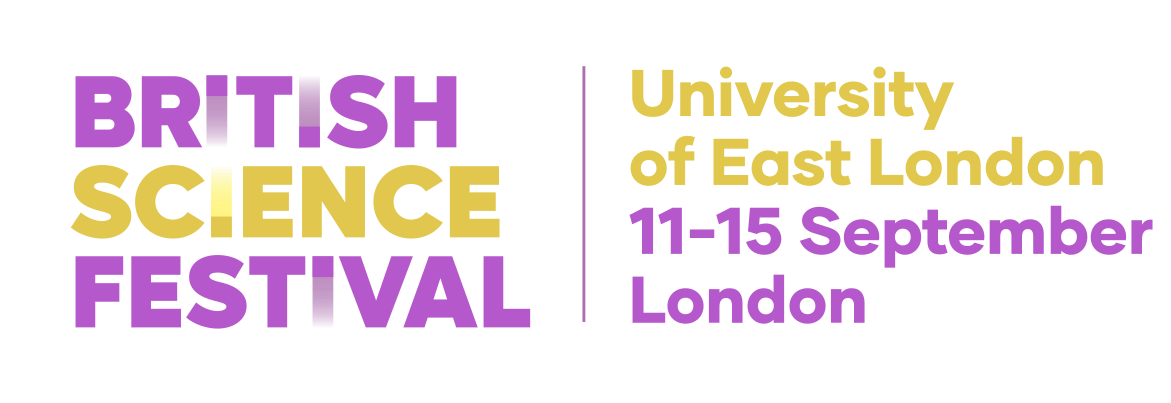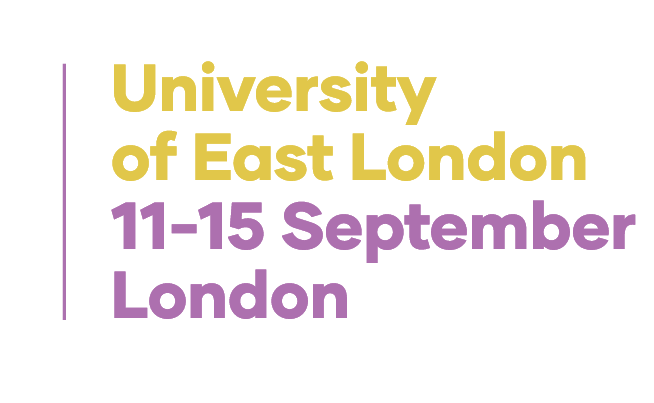
Earlier in 2023 I was a lecturer at Liverpool John Moore’s University for their Masters in Science and Art. The lead lecturer, Mark Roughley, asked if I would like to put myself forward for the Science and the Arts Award Lecture at the British Science Festival (BSF), and he would be my reference. I read the brief and application form and thought it would be exciting to be part of the BSF in Exeter, so got to work on the application. After some thought about what I would want to present, I am a collage artist looking at how the edges of collage can help me critically reflect on animal human hybrids in bioengineering, I got the application in…and to my surprise I was successful in getting the Award!
In the run up to the Festival, all the Award Lecturers – including myself – were invited to presentation and public speaking training with author of ‘Storytelling for Scientists’ (2019) – Alan Barker. I was nervous to attend at first because presenting (even role playing at presenting) makes me feel ill with anxiety, but I shouldn’t have worried – Alan was really attentive and gracious, and it was a fabulous way to meet the other Award Lecturers, who turned out to be equally as worried about public speaking as me. After a day of talking through our ideas for our talks, we all felt a lot more confident about what we wanted to present. In the run up to the Festival I kept in touch with BSF staff to finalise the wording of the blurb for my talk, technical requirements, and the logistics of attending the event. I spent a lot longer planning my talk than I expected, and I think the other Award Lecturers felt the same – we just wanted to make sure we did an excellent job for the BSF audience.
I was lucky enough that my talk was scheduled on the early afternoon of the first day, so I could relax for the rest of the Festival once my presentation was completed. In the morning, I watched a talk by my fellow Award Lecturer Angela Thornton on ‘Mind Uploading’ which was in the same room as I was to do mine. She did a great job, and I noted that she got asked some interesting questions from the audience, it was a great boost to see someone deliver an engaging lecture before my own. I hoped that my audience would be as engaged but was a little worried that my arts rather than science background may put them off. It couldn’t have been further from the truth! I knew I had hooked them in when the audience engaged with the interactive segment of my talk. I asked them to put popular culture hybrids on a scale of animal to human – ultimately to show that there isn’t really a scale and to get them thinking about the long-held beliefs we have about animal hierarchies! It was to my great pleasure that the audience was keen to shout out answers and get involved in a discussion. My Q&A session at the end was also lively, where I got asked some diverse and thought-provoking questions, which I made sure to note down afterwards so I could reflect on them further after the event.
I was nervous to present my research to a large lecture theatre – something I hadn’t done for my PhD research before; but on the day, the Festival and venue staff were so friendly it reassured me, and not only was I less nervous than I thought I would be, I also actually enjoyed myself! For the rest of the day the adrenaline slowly dissipated, and I settled in to hear some other fantastic talks.
The rest of the events were brilliant, and me and my driver (aka my partner) were so pleased we could stay for the whole Festival. We listened to the fascinating experiences of Anna Place and Dom Walters who are producers / directors at BBC Studios Natural History Unit; took part in the Natural History Museum’s escape room-esque game where we had to decide how best to solve some of the world’s resource issues; had our feet 3D scanned (I found out one of my feet is bigger than the other by half a size *gasp*); listened to a talk from the passionate Hamza Yassin, with some great questions from the youngest members of the audience; saw lots of creative art science interventions, including textiles made from non-repeating patterns from the Open University; and spent an evening outside listening to the very talented The Spit Game UK ‘s performance – in which they asked for word suggestions from the audience for their freestyle rap / poetry, and I accidentally bemused them with my shout out.
All in all, the organisers like the lovely Louise Cooke, the BSF stewards and staff, the choice of venues and event organisers, and the opportunity to mooch around a city I’ve never been before, made for a brilliant time and I would recommend going to and applying to be part of the Festival to anyone interested in Science (and the Arts!). My main take aways from my experience presenting an Award Lecture and tips to future Award Lecturers are:
- You’re not the only one who’s nervous and its totally normal because you care.
- Your presentation might be really obvious (and perhaps a bit boring) to you, because you think about it all the time, but the audience has probably never heard of your cool niche topic before- so they will love it.
- Make and take some time to enjoy the rest of the Festival, the organisers put so much thought into the programming and the vibe was great.
- Don’t ask The Spit Game UK to rhyme the word crocodile.
- Apply… because you never know!
Thanks BSF for the opportunity – it was a blast!
Applications for the 2024 Award Lectures are now open We are looking for early career researchers passionate about creating open conversations focusing on science and tech with diverse non-specialist audiences! To apply, please see more information here and submit your proposal by 23.59 on Sunday 10 December 2023.



